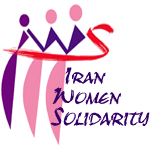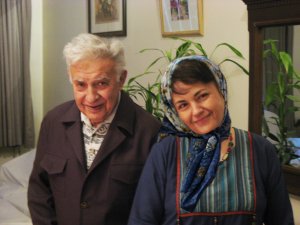There are few feelings that can compare with the passionate intensity of young love. Rand Abdel-Qader, at 17 years old, experienced a love as profound as her strong young heart could manage, a love strong enough to pass the boundaries of religion, race and culture. Rand’s generosity of spirit and her kindness led her into volunteer work, helping the needy of Basra, in Southern Iraq, where she met and worked alongside Paul, a 22 year old British soldier. Despite the differences between them, their relationship blossomed into a deep attachment. Rand was infatuated with Paul, who with his honey coloured eyes, education and sensitivity, was very different from all the other men she had known in her life. Rand dared to dream of a life beyond the life allotted to Iraqi women; she dared to dream of a love powerful enough to transcend the arbitrary boundaries of race and religion; she dared to believe she had rights and choices.
Rand’s dream ended in a nightmare: slaughtered by her father and his brothers, who spat on her corpse and denied her the dignity of a proper burial. For them, Rand was nothing but a possession of men, to be disposed of according to their will. For them, the Rand’s capacity for love threatened family ‘honour’, where men are judged by their ability to oppress and control women, and where woman’s autonomy, particularly sexual autonomy, is considered a threat to the patriarchal order.
The attitudes of Rand’s father are reinforced and condoned by the Iraqi state. Under Article 111 of the Iraqi penal code, men who kill female relatives with the motive of ‘honour’ are guaranteed lenient treatment, with a suspended sentence a normal penalty for a first offence. As Iraqi society becomes increasingly theocratic, the oppression of women is justified by references to religion: efforts by Narmin Osman MP to reform this injudicious and disgraceful law have only gained support only from secular and Kurdish parties, and face opposition from the main Shi’a and Sunni parties.
Iraqi Accord Front MP Hashim al-Taee and United Iraqi Alliance MP Qais al-Ameri told the Institute of War and Peace Reporting that honour crimes are permitted under sharia, or Islamic law, “Illicit sex is the most dangerous thing in a society, and there should be severe punishments against those who practice it,” said al-Ameri . Severe punishment indeed for Rand, who had internalised her society’s sexual taboos so deeply that her tragic love remained physically unexpressed, but whose father escapes punishment, in the words of Sergeant Ali Jabbar: ‘Not much can be done when we have an “honour killing” case. You are in a Muslim society and women should live under religious laws.’
As Iraq grows increasingly theocratic, women’s liberties are curtailed by fundamental religion and the ever present threat of violence. Even the police admit that every other day, a woman’s body is found, murdered for violating conservative Muslim dress cards. According to activists, this is a small proportion of the real figure of women murdered by extremists, and their families. Iraq’s women have entered a new dark age, of beheadings, rapes, beatings, suicides through self-immolation, genital mutilation, trafficking and child abuse masquerading as marriage.
Last year 133 women were killed in Basra – 47 of them for so-called ‘honour killings’, according to the Basra Security Committee. Out of those 47 cases there have been only three convictions for murder. Since January this year, 36 women have been killed.
Leila Hussein is one of those women fighting against the tide. Rand’s mother, she has the same fierce heart and the same determination to heal Iraq. Leila, failing to be able to save her daughter, is now a campaigner against ‘honour’ killings in Iraq, even though she lives in constant fear of being killed by her husband. Leila, and all other Iraqi women working against the patriarchal brutality of their society need international support from every credible source.
Rand Abdel-Qader dared to dream of a love between man and woman as equals, across all the boundaries; the kind of love that can build bridges across all the divisions that separate us, a revolutionary love yearning for freedom. In the name of Rand Abdel-Qader, and in the name of love, we must defend Iraqi women’s rights.

